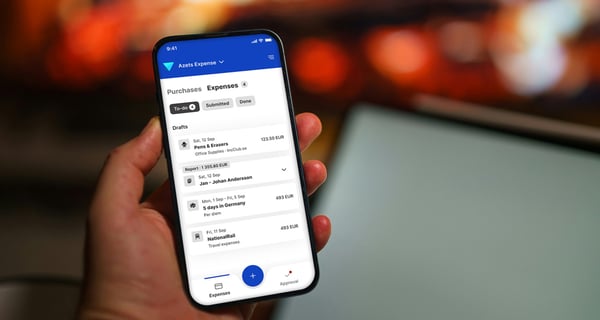

Digital acceleration has *finally* catalysed the accounting industry into action. After decades of process paralysis – despite slowly transforming – the financial services sector as a whole is now on a clear trajectory to meet the needs of modern businesses.
However, given the pace of technological change, to avoid being left behind, accounting and payroll services must continually demonstrate their value to the businesses they serve.
It’s therefore incredibly important for them to evolve their practices in line with the data-driven shifts happening in other areas of commerce.
But that’s something that’s often easier said than done… right? Not if they have the right partners.
Change: Long Overdue
Looking back across history, the arrival of cold hard currency as far back as Ancient Mesopotamia, Egypt, and Rome brought about the need for accountancy. And while practices have changed significantly, the underlying principles of modern accounting – credits, debits, journals, ledgers – date back to the 15th century. Needless to say, despite having a solid foundation, modernisation is essential.
To be fair, accounting has adapted over the years to keep up with the needs of industrial change. But it’s only really in the last 100 or so years that it’s been mobilised as a broader professional service. And it’s only in the last 20 years that efforts have been made to ensure greater transparency, compliance, and risk management safeguards are put in place (thanks Enron!).
Adapting To Big Data
However, the biggest catalyst for change in accounting – as is the case for many different sectors – is data. The sheer volume of it coursing through every business’ servers and systems is testament to the corporate world’s reliance on it for everything from marketing to HR. And now accounting needs to play catch up.
Being numbers and process-driven, you’d think accounting would be ripe for early tech adoption. But, like all things finance-focused, change has been slow and steady – despite the fact accountancy is a business-critical function.
The reasons for its delay are varied – but are largely underpinned by security concerns around sharing financial data. Things are finally changing though. Fintech companies are growing rapidly, proving their security and stability – particularly online and digital ‘challenger’ banks, whose surging popularity speaks volumes about customer trust.
It’s a similar case with cloud computing. As more and more businesses migrate their servers to the cloud, looking for ways to integrate all of their data into centralised services, they’re abandoning legacy hardware, software, and applications and opting for an ‘access’ rather than ‘ownership’ model.
Businesses no longer need to invest millions into servers and software licenses when cloud-based SaaS platforms and APIs can provide not just the capacity and security they need – but the scalability and flexibility too.
Such is the power of, and drive towards, digital transformation. But just how far behind are accounting and payroll?
Progress Being Made
Admittedly, digital transformation is a major business buzzword. But management-speak and the all-encompassing ‘drive for innovation’ aside, for many businesses it’s rooted in a need for more efficiency, accuracy, and cost-effectiveness: three areas that matter most to finance and accounting.
To that end, looking at some of the ways in which accounting and payroll have been adapting, it’s clear that progress is being made. Research from KPMG shows that numerous areas of accounting are being digitised – including paperless accounting, APIs, visualisation tools, big data analyses, and real-time reporting.
However, looking at some of the study’s qualitative responses, it quickly becomes apparent that while new technology offers clear and essential benefits to accounting professionals, there’s still a healthy dose of scepticism around the adoption of technology for its own sake
Or, to quote one of the respondents:
“…we must of course also differentiate very, very carefully between what is merely “trendy” and what is really relevant and adds value.”
When quizzed around the obstacles to digitisation, the same pool of respondents cited concerns over inadequately optimised processes and the impact on employees.
While these common concerns are reflected in many other areas of commerce, it’s clear that for progress to be made where accounting is concerned, there needs to be an immediate, tangible impact on the way processes are handled from the get-go.
Paradigm Shift
It’s true that transformation can be disruptive. And for many accounting professionals it means a paradigm shift – not just from one platform or piece of software, but to a whole new way of working.
However, change doesn’t have to take place overnight – in one fell swoop. It can be made incrementally; even where SaaS platforms and optimisation tools are concerned. Plus there are many different services that can start adding value right away.
Take cloud storage for example. The sheer volume of information accounting teams need to store and keep hold of – often for several years – used to mean a lot of back-office storage was needed. Now, everything can be stored remotely in a cloud server. As long as the records are already digitised, that is.
On a similar note, the use of online SaaS-based accounting software means that finance, payroll, and accountancy teams can easily access the same records, follow the same processes, and have a single pane of glass overview of crucial facts and figures.
SaaS services also update automatically – meaning the latest software is always being used – compliance is baked in, and the automation of key processes means less tedious data entry is needed.
But while these services may benefit accountants themselves, the true value add of any platform or service is the ability to make life easier for both professionals and their customers.
Changing The System From Within
Perhaps we’re being too harsh on accounting practices. While of course there are those keen to change and digitise how they operate, a lot of the requirements they adhere to – like keeping paper records – are government-mandated.
This is already changing from the top down. The Swedish government’s proposal of lifting the requirement to save original paper documentation – such as receipts and invoices – is clear evidence of that.
But as mentioned above, for true adoption of a specific practice or technology to take root, there needs to be a double-sided value add. Take expense management for example (a topic close to our heart here at Findity!).
Being able to provide accountants and end users with a single, simple interface with which to capture, track, and monitor their company expenses is a no-brainer from a tech perspective. And given that many other services like these exist as API or white-label solutions, they’re exactly the kind of value-adding, low-effort, cost-effective innovations that accountants need.
Overall, change is afoot. Accountants are obliged to do things by the book – but the sheer volume of rules, regulations, deductions, allowances etc, means that there continues to be numerous obstacles to overcome.
As a professional service, in accounting, a high level of expertise is needed. That’s not going to change anytime soon. But the processes underpinning all of these are changing – becoming faster, secure, and more accessible. That doesn’t negate the need for accounting professionals; it means that their lives are about to become a whole lot simpler.
Having less admin, greater efficiency, more time, and – yeah, why not? – being able to offer customers (external client or internal stakeholders) a better experience in the way they interact with financial services can only be a positive thing.



